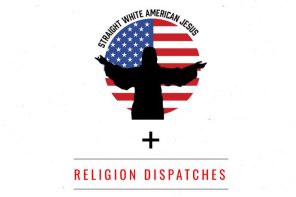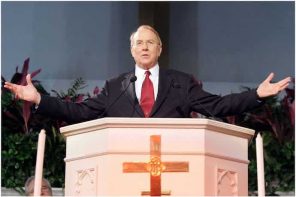“Pray harder. God will heal you,” Mary pleads with her gay son. Bobby dutifully attends a Christian accountability group, visits an ex-gay psychiatrist, reluctantly dates a woman from his mother’s Sunday school class, and even abstains from eating dessert. It’s the late 1970s in Walnut Creek, California and Mary is played by Sigourney Weaver in the Lifetime television movie Prayers for Bobby.
When Bobby haltingly confesses to his Christian family that he thinks he’s gay, their immediate reaction is “God can handle this. It’s curable with his help.” These were the messages that the real-life Mary Griffith scrawled on post-it notes and pasted throughout her home until Bobby killed himself at the age of twenty. Prayers for Bobby is adapted from a book by the late journalist Leroy Aarons, and most of the material is gleaned from the diary Bobby left behind when he died in 1983.
In the movie Mary explains, “We’re doing this because we love you,” to which an increasingly exasperated Bobby responds, “This is what love feels like?” Bobby might have posed his question to Focus on the Family and the ex-gay movement, who sponsor “Love Won Out” conferences with ex-gay speakers who proclaim that homosexuals can change. Instead of condemnation, “Love Won Out” speaks of compassion, transfiguring anti-gay politics into the language of love. Mary parrots the ex-gay platform about homosexuality: it is a choice, a result of overbearing mothers and distant fathers, and a one-way ticket to hell. “I won’t risk our family not being together in the next life,” she declares.
“I’m healed!”
The film hews to the conventions of Lifetime, in which tragedy inevitably leads to personal growth. There are archetypal characters: the jock brother who makes gay jokes, the sinister psychiatrist, the judgmental minister from the Griffith’s church, and the sympathetic gay man with whom Bobby shares a drink at a dance club. It is a film designed to teach us a lesson about religious intolerance, but in doing so it reproduces the unspoken rules for rendering gay people sympathetic or likeable to a television audience: they were “born that way,” they never have sex, and, of course, they die tragically.
Bobby’s desire to please his family dissolves as his attraction to men refuses to fade. When he returns from a father and son camping trip, his mom anxiously emerges from the house to ask how it went. “I’m healed!” he quips and storms inside. Actor Ryan Kelley plays Bobby as an eager and sensitive young man. His relationship with his boyfriend David consists of chastely holding hands or hugging. The real Bobby Griffith wrote anguished diary entries about his drug use and stint as a gay prostitute, but none of this appears in the Lifetime version—the only people having sex are Bobby’s parents, and their sex life has a renascence after Mary becomes a gay rights activist.
In their final confrontation Mary tells him, “I won’t have a gay son.” Furious, Bobby retorts, “then you won’t have a son.” As he bids the rest of the family farewell, Mary sobs behind the living room curtain. He sends her pro-gay literature as a gesture of reconciliation. She mails him a sweater and a pamphlet entitled “AIDS: the Wrath of God” on his birthday.
There is a short period before his euphoria at being on his own is replaced by despair over his family’s rejection. Real-life Bobby committed suicide by jumping off a bridge. In the film, he assumes a Christlike pose at the final moment, arcing backward into traffic while an image of Mary repeating “I won’t have a gay son” flashes on the screen. Bobby’s death is the beginning of Mary’s conversion.
Inconsolable, she visits a Metropolitan Community church where she debates scripture with the forbearing minister. Their somewhat pedantic debate over Leviticus and Sodom and Gomorrah instills doubts in her about biblical literalism. He tells Mary “God loves them as they are.” She attends a Parents and Friends of Lesbians and Gays (PFLAG) meeting, speaks at a public hearing on behalf of gay people and becomes a staunch gay activist.
Mary eventually accepts who Bobby was and might have been because she believes he was “born that way.” She testifies to the PFLAG group that she knew he was different at conception. She felt it. Other parents talk about children who never played sports or wore pink Lacoste shirts. The film’s response to the ex-gay argument that gay people can and should change is that sexuality is biological or genetic—a politics that grants full citizenship regardless of whether sexuality is immutable is illegible for the television genre.
Bobby becomes a metonym for the failure of a religious discourse that disguises anti-gay sentiment in the language of love and compassion. Bobby’s story is tragic, but the real tragedy is the stories of innumerable gay youth who endure the consequences of rejection and shame from their families and religious communities.
The psychiatrist asks Bobby, “Do you want to be homosexual?” and he responds, “I want to be close to my family.” Yet, he can only do so if he renounces his sexuality. According to “Love Won Out,” a teenager should come out of the closet and enter an ex-gay ministry. In a press release, Focus on the Family accuses Prayers for Bobby of presenting “only half of the story, leaving out the redemptive power of Jesus Christ.” During the same weekend Lifetime aired the film, Focus broadcast “Love Won Out” presentations on God TV and online.
Prayers for Bobby is ultimately about Mary’s metamorphosis. We measure her transformation from a woman frantically scrubbing off the taint of her handshake with David at the funeral to spontaneously embracing a teenage boy with a striking resemblance to Bobby at the San Francisco gay pride parade. Mary smiles beatifically as she walks away from him, and rejoins the PFLAG contingent where she marches holding their banner.
“I won’t lose you to this,” she tells Bobby at the beginning of the film—but in the end, she does, having listened to a religious message that proclaims self-hatred in the guise of love. The real Mary Griffith dedicated her life to counseling and lobbying on behalf of gay youth. Her transformation is the most meaningful form of redemption in the film.




